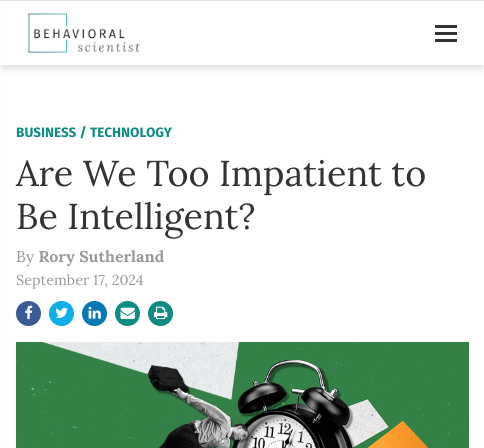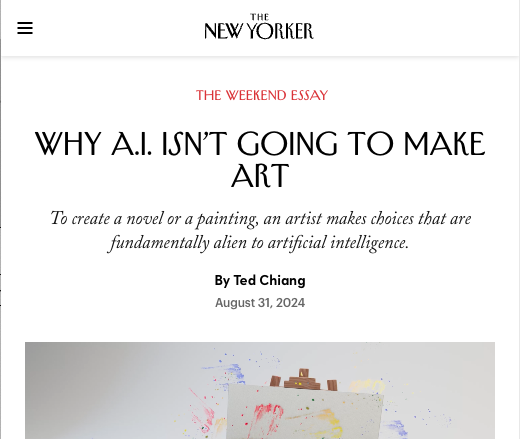Ogilvy’s Rory Sutherland with some insight into how humans fail to perceive time, and a couple book recos
Quite the title on this article in Behavioural Scientist by Ogilvy honcho Rory Sutherland: Are We Too Impatient to be Intelligent?. It’s packed with ideas, though, mostly to do with how the human brain perceives and values time.
Maybe it’s because I spent a wild amount of time in traffic this weekend, but the paceometer is a useful thing to think about:
Some of you may have noticed this if you’ve got a GPS in your car. You’re driving on the motorway at 60, you realize you’re going to be five minutes late for an appointment, so you welly it. And after driving at an insanely fast and dangerous speed for about eight minutes, you suddenly realize your arrival time has only improved by one minute.
More than once I’ve said that I’d pay for a navigation app that gives me the ‘most pleasant’ route between a and b, not the fastest. He’s got it here too:
What would’ve happened if you hadn’t given the brief for High Speed 2 to a load of engineering firms who immediately focused on speed, time, distance, capacity? What if you’d given the brief to Disney instead?
They would’ve said, “First of all, we’re going to rewrite the question. The right question for High Speed 2 is: How do we make the train journey between London and Manchester so enjoyable that people feel stupid going by car?” That’s the right question. It’s not about time and speed and distance. Those things only obliquely correlate with human behavior, with human preference.
He references a book that digs into this, called The Unaccountability Machine by Dan Davies (that I’ve now ordered):
…if you can reduce decision-making to an algorithm, or a formula, or a process, or a procedure, you avoid the risk of blame. Computer says no, effectively.
Instinctively, people love to codify things, and make them numerical, and turn them into optimization problems with a single right answer. Because the second you acknowledge ambiguity, you now have to exercise choice. If you can pretend there’s no ambiguity, then you haven’t made a decision, you can’t be blamed, you can’t be held responsible.
It’s a great piece and there’s a lot more there than I mention here. He also mentions Robert Cialdini’s book Influence, which I read many years ago and think about all the time. Check it out.






